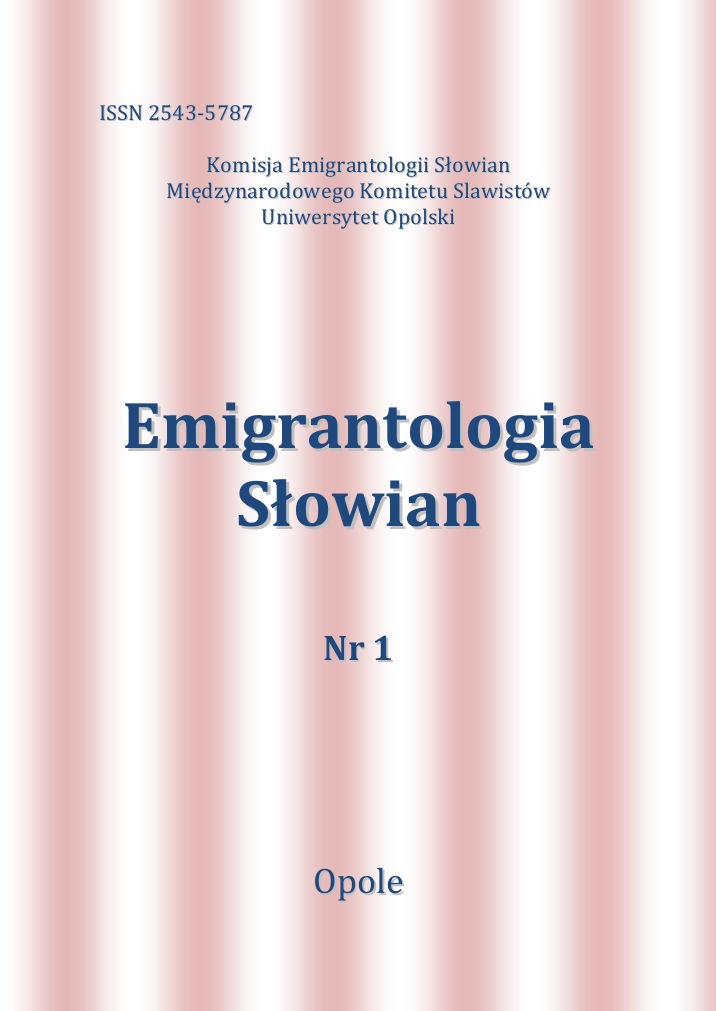
We kindly inform you that, as long as the subject affiliation of our 300.000+ articles is in progress, you might get unsufficient or no results on your third level or second level search. In this case, please broaden your search criteria.

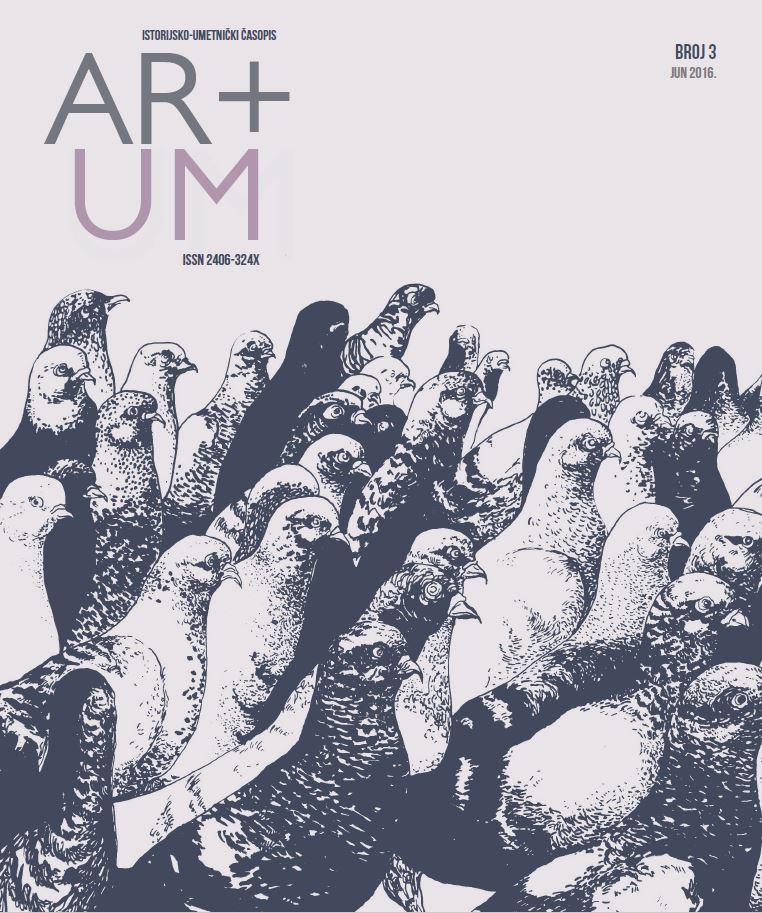
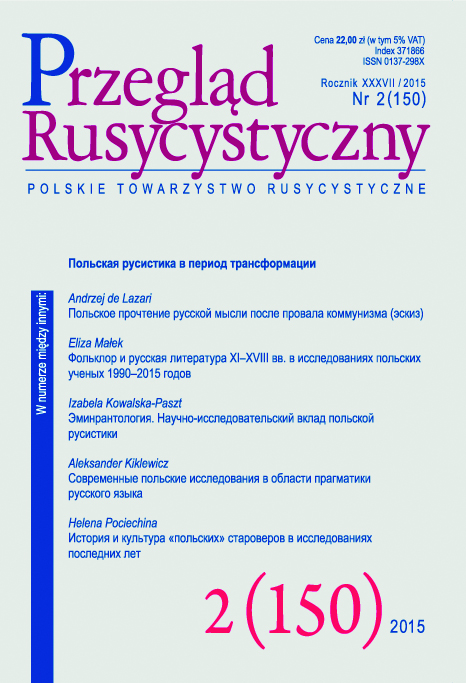
Based on the literary and cultural material, the article discusses two functions played by the term of emigrantology as a legacy of three waves of Russian emigration in the 20th century. The term was introduced by Lucjan Suchanek to the research space of Slavic emigration. It has systematized the area of intellectual and scientific self-reflection (including literary studies, historiography, philosophy and theology, and cultural studies), which developed in the community of Russian emigration. Additionally, the term provides modelling of the need for interdisciplinary and in the nearest future trans-disciplinary studies on the complex cultural phenomenon of Slavic emigrations. In this particular context, the article presents major research directions and achievements of Russian studies in Poland.
More...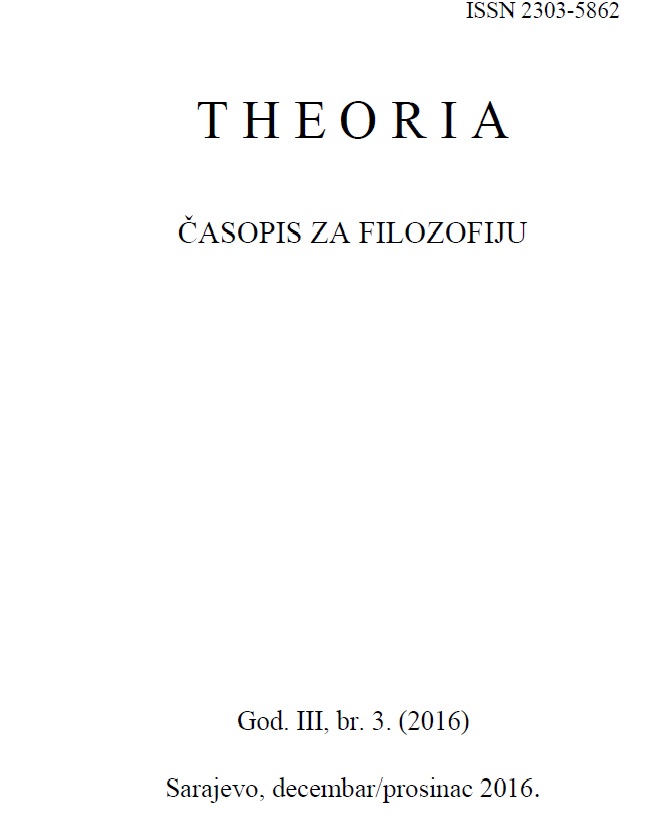
This paper studies the cultural, in this case literary (prose),communication between writers-representatives of different nations. After the determination of the term interculturality and function of culture in slowing the stigma, ghettoisation, passes to the analysis of literary and social activities of two writers,members of the same minority in Serbia - Laslо Vegеl and Laslo Blašković. In the case of different strategies (writing in their native or second language, orientation towards his national community, the relationship to the majority, according to a former state – Yugoslavia – and present, Serbia, treatment of political issues, etc.) Establishes their relationship to their own entity stronghold and possibilities of overcoming its possible oppression (the term Gayatri Chakravorty Spivak) or oppressiveness (termed Susan Stanford Friedman).
More...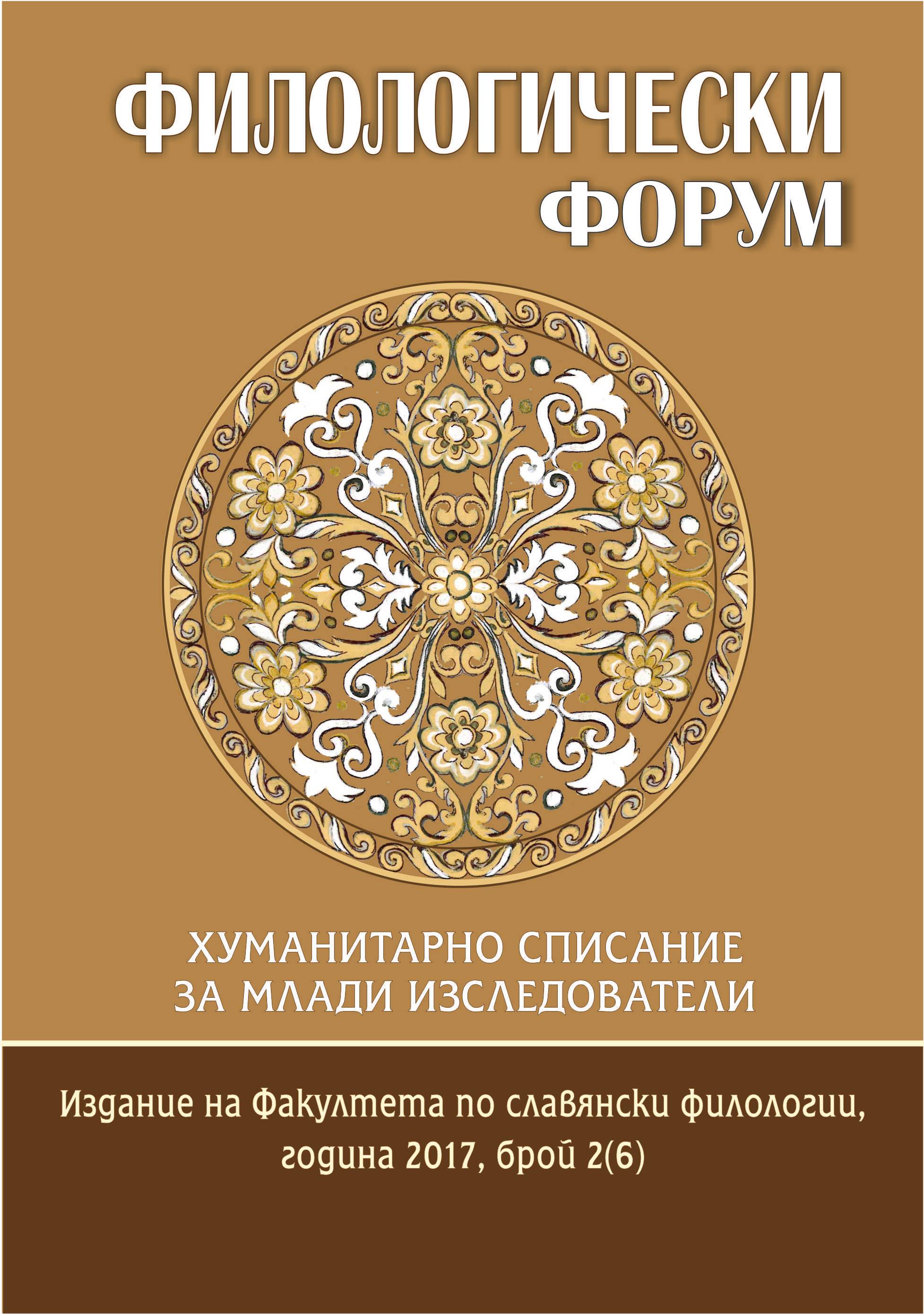
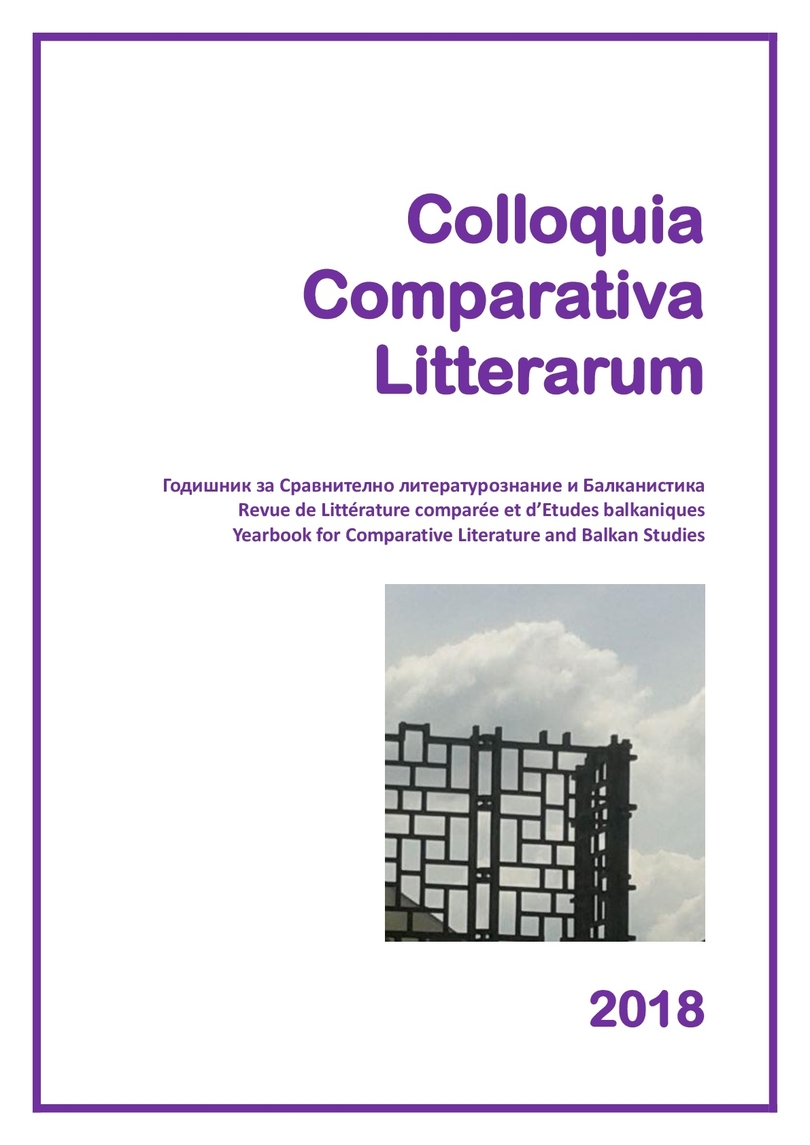
The Home of Literature is a metaphor of the literature and literary community. However, this metaphor is connected with the home obsession in contemporary post-Yugoslavian literatures. After the collapse of the Former Yugoslavia and Bosnian war, the home is one of the constant themes in contemporary literature in all area. We can see that in the poetry of the Bosnian-Slovenian poet Josip Osti, but also in the novels and essays of the famous emigrant writer Dubravka Ugrešić, as well as in the works of Peter Semolič, Miljenko Jergović, Vida Ognjenović, Jasna Koteska etc. The home is often present even in the titles of their works (House of Language by Osti, House of Words by Semolič, The House of Dead Scents by Ognjenović), and what is more important – the home is a counterpart of the literature as a place of the sense in the world that every day loses a part of its sense and good taste. The literary home is not a utopian place, because it is a collective image and it could be the dystopian place as well. We mark that through the works about the prison and concentration camps – The Damned Yard by Ivo Andrić, the novels and stories by Danilo Kiš, Dragoslav Mihailović, Branko Hofman, Miroslav Popović etc. At all events, the literary home is always a place of the reinventing of the sense.
More...
This article examines how women writers in the Balkans from the second half of the 20th century narrate war. The focus of the study is on the museum's classifying function to include narrative forms such as the album and the diary, in the genre of the novel. In order to narrate a major theme like the war, Dubravka Ugrešić (Croatia) and Blaga Dimitrova (Bulgaria) use these two forms, traditionally thought to be representative of the female voice. The study traces the literary and museum representations of the album and the diary in which memory plays the major role.
More...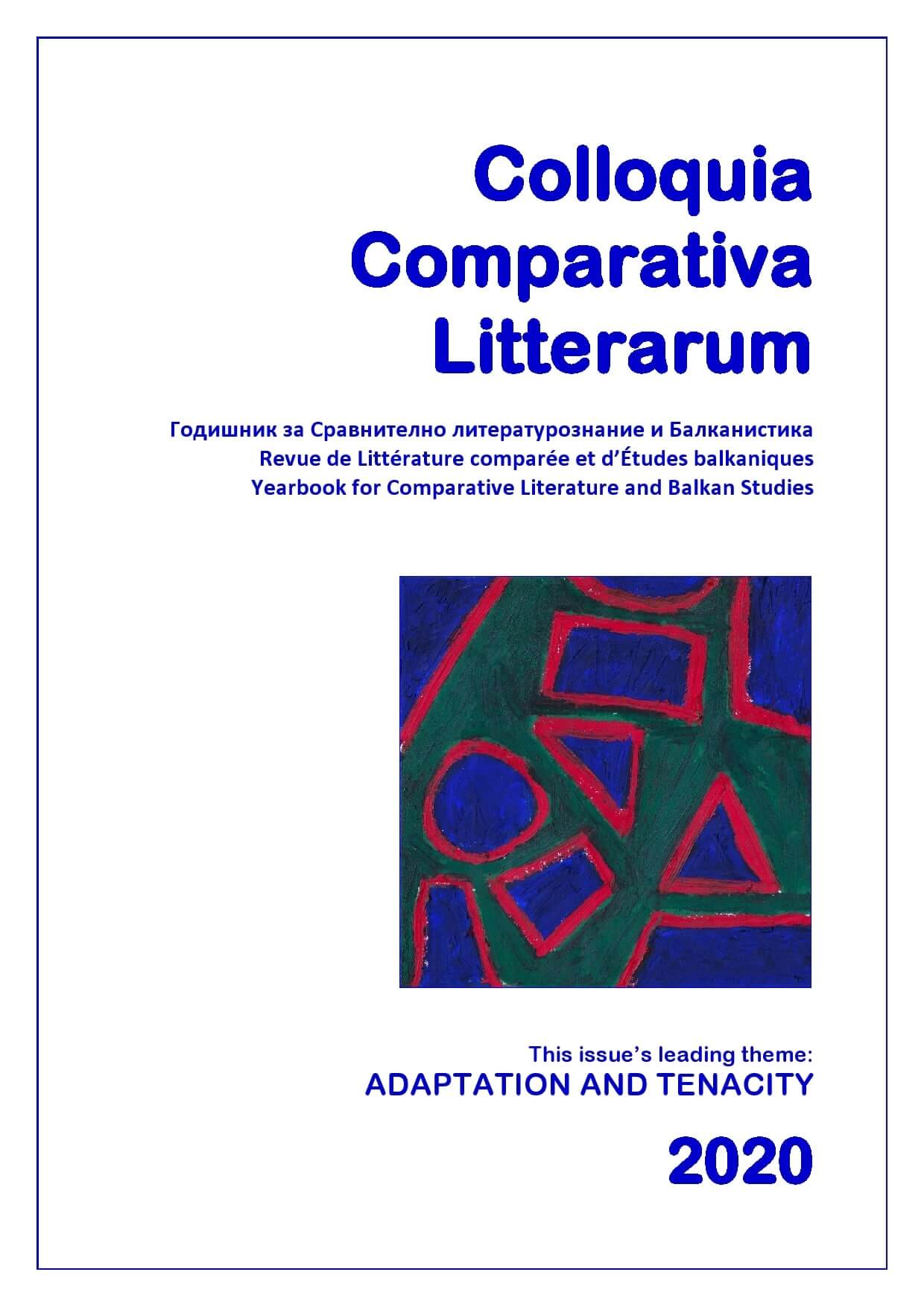
This article examines two Balkan novels in which memories, as fragments woven into the textual fabricof the autobiographical, define the museum-like narrative structure. The focus of the comparative analysis is onthe female voice, which dynamises the museum as a “place of memory” in the novel through the war theme. Byreplacing the lost home with a kind of a mobile ‘museum-novel’ (as a specific type of novel, the genre of exile),writers such as Gabriela Adameșteanu (Romania) and Dubravka Ugrešić (Croatia) problematize the image ofthe waiting woman Penelope, transforming their novels into a female Odyssey between personal and public,authentic and imaginary, past and present, continuity and discontinuity, myth and history.
More...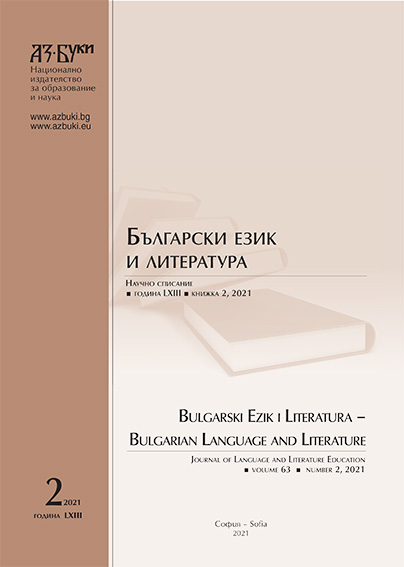
About Ivan Vazov everything seems to have been researched, written and published. Among the many literary criticisms devoted to his life and work, as well as documentary publications, the relationships with his translators and foreign publishers, to whom I believe we have a cultural and moral duty, are very rarely mentioned. However, the correspondence between him and the Croat Fran Gundrum-Oriovac stands out among all. No one else has translated as many of Vazov's works as this Croatian writer. Unfortunately, the acquaintance with Fran Gundrum's archive is indirect, but I would venture to focus on his translation practice, the regulation of relations between the two, their long-term cooperation and the reception of Vazov's work in Croatia. The proposed interpretation of the “File” does not claim to exhaust the relationship between the two. Our task is based on the personal correspondence published in Volume 10 of the Bulletin of the Institute of Literature of the Bulgarian Academy of Sciences in 1961 between Dr. Fran Gundrum and Ivan Vazov – to try to reconstruct the translation and publishing strategies of Fran Gundrum.
More...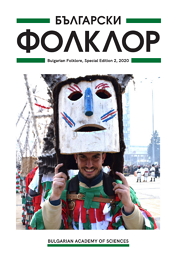
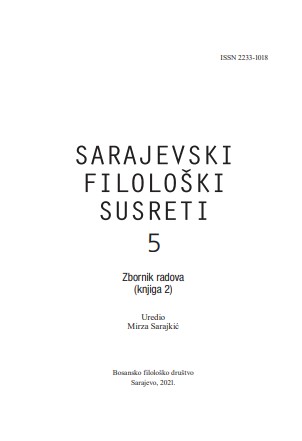
As the fundamental text for the study of artistic and literary avantgardes, Bürger’s Theory of the Avant-garde has been the subject of a wide and diverse critical reception. An especially contentious claim of Bürger’s is the one about the failure of neo-avant-garde art – a claim that cannot be separated from of his category of historical avant-gardes and the claim about the defeat of the pre-war avant-garde movements. Missing the construction of Bürger’s argumentation, different critics have pointed to different post-war artists and artistic movements which, through their work, revitalized avant-garde poetics with more or less success. However, by staying in the same framework of the Euroamerican capitalist West and its artistic system, these counterexamples could not offer a systemic intervention into Bürger’s theory. Due to its specific historical, social, and therefore cultural and artistic trajectory, the experience of Yugoslavia represents one of the possible points of departure for such an intervention. By focusing on existing interpretations of the relation between the Yugoslav avant-garde, neo-avant-garde and post-avant-garde, this article aims to show how the unique relation of the post-war avant-garde towards its tradition can contribute to the critical supplementation of Bürger’s theory and a more nuanced understanding of the possible relations between the neo-avantgarde and the avant-garde. In that sense, this article will try to show how the Yugoslav example is indispensable to a relevant discussion of artistic avantgardes in general.
More...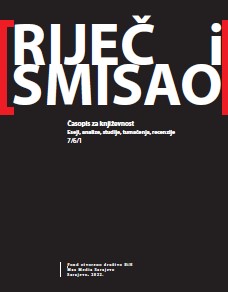
The aim of the paper is to present the subversive role of literature on the example of the Feral Tribune magazine and library. The analysis begins by listing the types of repressive measures the magazine was dealing with in the time of SFRJ and independent state of Croatia which ultimately led to the cancellation of the magazine in 2008. Following the literary procedures in the published texts, the interpretation deals with forms and contexts of literature which are deemed as subversive in the Feral. As examples of the most important art forms in the Feral, the author singles out the columns Bilježnica Robija K. and Greatest shits, shorthand forms of burlesque comedy, provocative aphorisms and travestied forms of poems published in the magazine. Additionally, the paper is also looking into the method in which the publishing venture of the Feral Tribune library subversively influences the social and cultural atmosphere of Croatia and its vicinity. The criteria of the book selection for the library itself and the manner in which the literary discourse of the chosen works was undermining nationalist and clero‑fascist metanarratives are further explained in the final part of the paper.
More...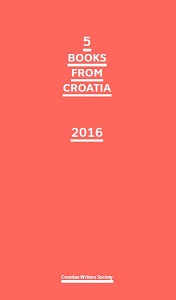
The project 5 Books from Croatia is part of a new push to promote Croatian literature in a more methodical and transparent way. ‘Small’ literatures have always been less visible in the English-speaking world, trailing behind translations from German,French and Spanish. To date, English editions of Croatian authors have been the result of individual endeavours and the passion of a small number of translators and publishers with a special interest in translated literature. But while ‘big’ languages have a tradition of systematically promoting books, such as the leading publications10 Books from Holland and New Books in German, Croatian literature is still terra incognita to most publishers, editors and the broad reading public. This is hardly surprising because well-translated,representative excerpts from the best Croatian titles are neither cheap nor easy to come by.That is why we have decided to launch 5 Books from Croatia – a publication with a clear editorial conception that once per year will present four contemporary authors and one classic, a ‘forgotten gem’. The aim of the booklet is to highlight Croatian authors whose works radiate features of the country’s culture and literature but at the same time possess a timeless and universal human quality.Sizeable excerpts (around 5,000 words each) have been translated by a team of excellent translators headed by Will Firth – also guest editor of the publication – and give a vivid impression of the rich and exciting climate in Croatian literature today.
More...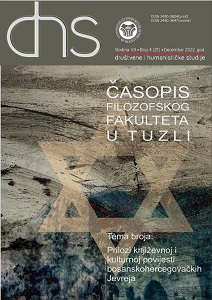
The paper focuses on the divergent national perspectives – Croatian and Serbian – regarding the reasons behind Yugoslavia's unification (the Kingdom of SHS), moreover on the causes of its disappearance from the historical scene, both as the Kingdom of Serbs, Croats, and Slovenes and as the Socialist Federal Republic of Yugoslavia. From the perspective of Serbian „nationally conscious“ historians, it was the Croatian separatism that should be blamed for the downfall of the Kingdom of Yugoslavia during the Italian and German occupation in 1941 as well as the inner disintegration of the Socialist Federal Republic of Yugoslavia in 1991. From the Croatian perspective, the reason behind the downfall of Yugoslavia is in Serbian unitarism, which, through Yugoslavia, aimed to dominate over the other nations. While condemning the nationalistic politics of other nations for the breakup of Yugoslavia, both of these nationalistic perspectives consider Yugoslavia an artificial creation. Miroslav Krleža, a Croatian and Yugoslav writer, criticized the politics of Croatian national separatism and Serbian unitarism in the texts he wrote during the time of the Kingdom of SHS (Yugoslavia). These writings also represent his efforts to open a possibility for a new political community based on socialistic principles. Although his polemic thought was based on the recognition of national particularities, Krleža was looking for ways to overcome the national antagonisms within socialist Yugoslavia. Although Yugoslavia disappeared, his thought on nationalistic antagonisms is relevant in the current political framework, the one in which national exclusion is dominating.
More...
Kroatywni. Dramat chorwacki po 1990 roku. Wybór tekstów powstał na podstawie antologii współczesnego dramatu chorwackiego pt. Odbrojavanje (Odliczanie),którą zestawił Leo Rafolt, a wydała w 2007 roku Zagrzebska Szkoła Slawistyczna. Leo Rafolt jest też autorem wstępu do niniejszego wyboru, wstępu, który ma na celu zaprezentowanie polskiemu czytelnikowi kondycji dramatu i teatru chorwackiego po 1990 roku. W Kroatywnych oprócz siedmiu dramatów pochodzących z Odliczania (są to dramaty Lady Kaštelan, Mate Matišicia, Asji Srnec‑Todorović, Filipa Šovagovicia, Teny Štivičić, Milko Valenta, Tomislava Zajeca) znalazły się jeszcze trzy utwory wybrane przez zespół realizujący projekt (utwory Dubravko Mihanovicia, Marijany Noli i Borivoja Radakovicia). Każdy z tych tekstów był w Chorwacji nagradzany i/lub uwzględniany w którejś z opublikowanych antologii współczesnego dramatu (z wyjątkiem Diwy Marijany Noli, której premiera odbyła się w 2011 roku). Jednocześnie żaden z nich nie został jeszcze przełożony na język polski.Idea zapoznania czytelnika polskiego z tendencjami panującymi w dramacie chorwackim od lat dziewięćdziesiątych XX wieku stanowiła główne kryterium niniejszego wyboru. Wybór ten jest uzupełnieniem tego obrazu dramatu i teatru chorwackiego, jaki wyłania się z już przetłumaczonych i wystawionych utworów.Z jednej strony lektura prezentowanych dramatów pokazuje czytelnikowi współczesną Chorwację, zupełnie inną niż ta, z jaką się styka turysta spędzający wakacje nad przepięknym wybrzeżem Morza Adriatyckiego. Z drugiej strony nietrudno odnieść wiele sytuacji ukazanych w poszczególnych utworach do polskiej rzeczywistości i odnaleźć w niej analogiczne zjawiska. W Kroatywnych... są utwory zabawne i przerażające, podejmujące ważne, uniwersalne tematy i pokazujące problemy, z jakimi boryka się dzisiaj społeczeństwo chorwackie. [16.10.2012]
More...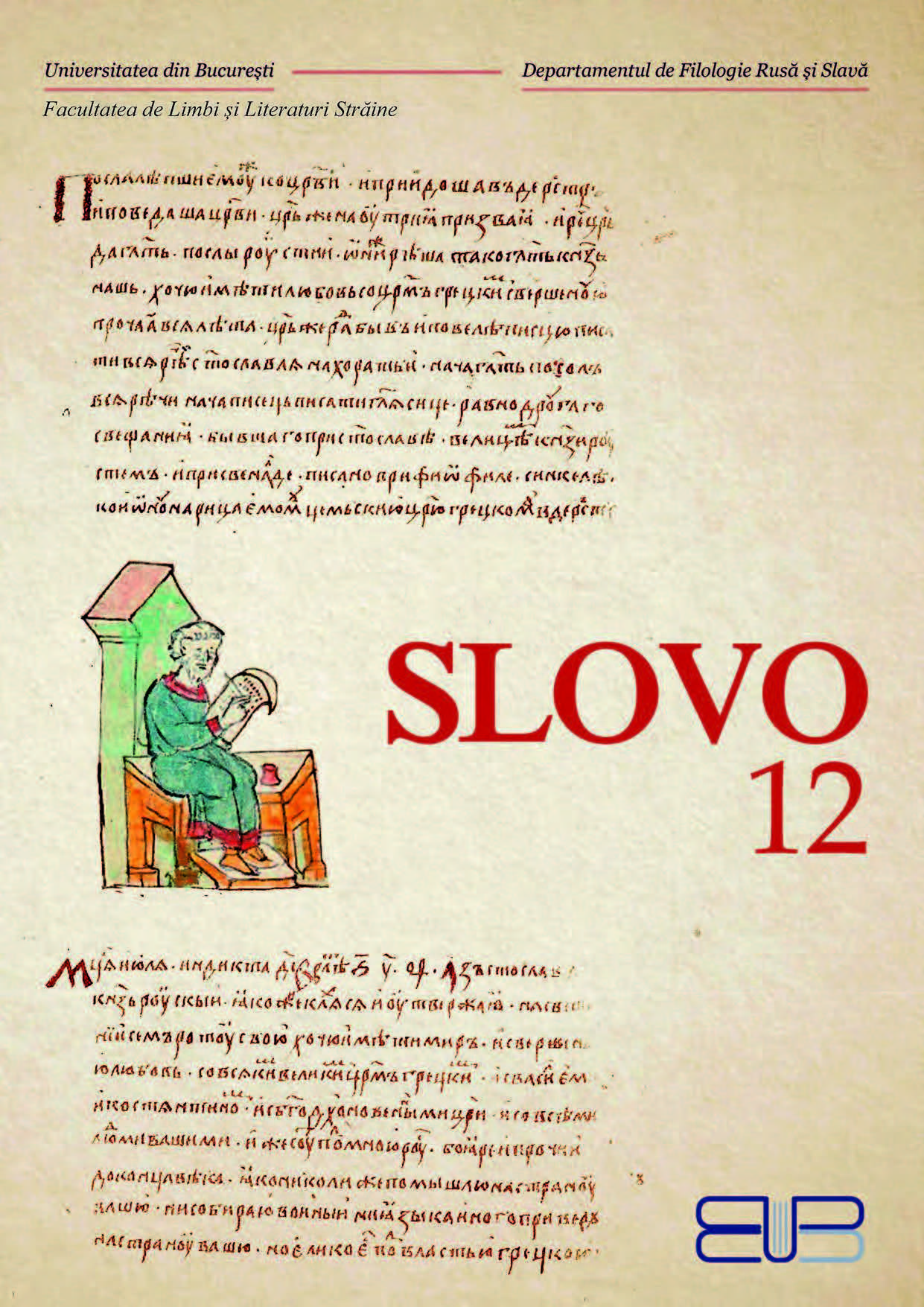
Review of: Camelia Dinu (ed.), Simbolismul în literaturile slave, București, Pro Universitaria, 2020, 263p., ISBN 978-606-26-1233-7
More...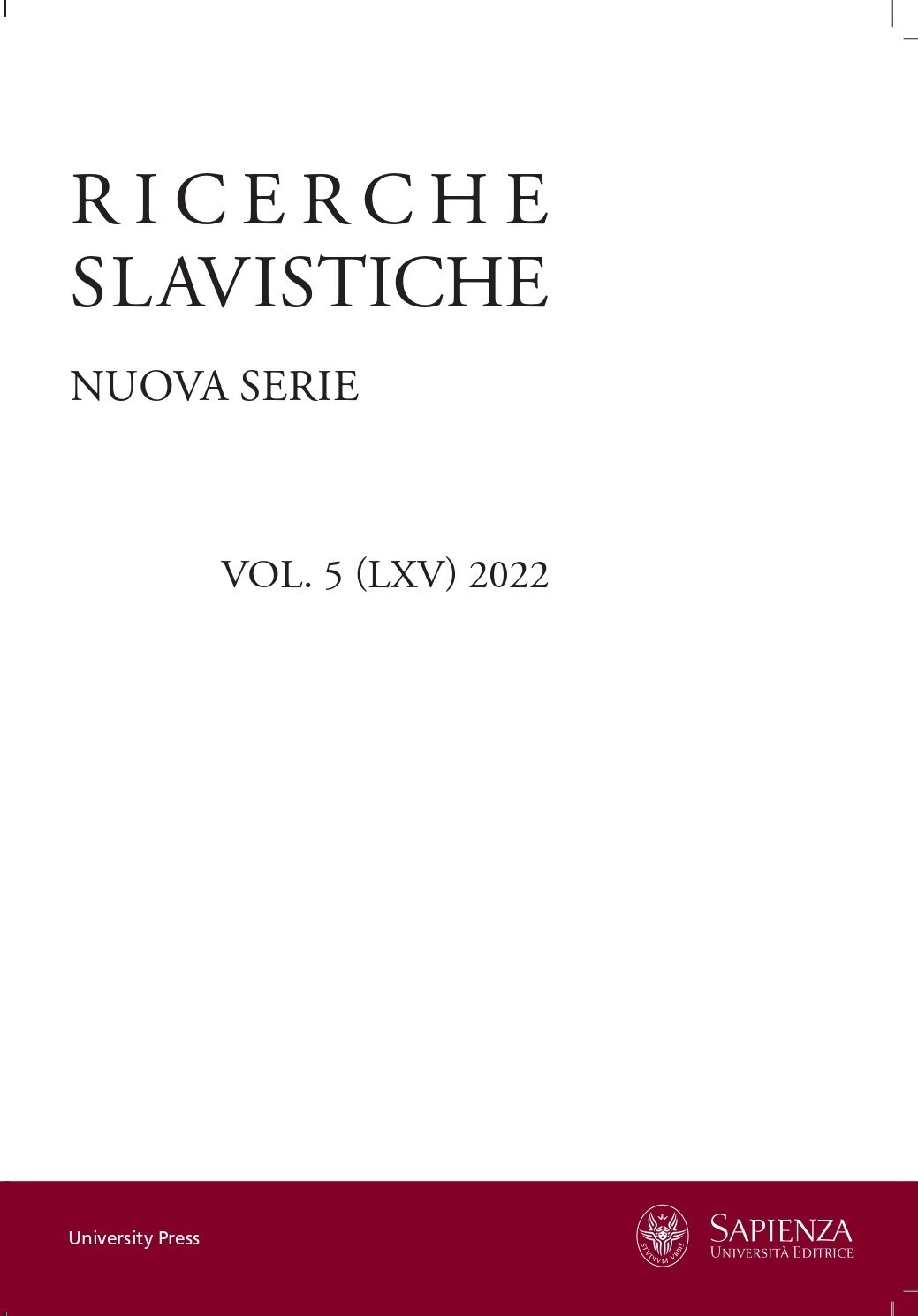
Serbocroatistic contributions have been published on the pages of “Ricerche slavistiche” since 1952, when this academic journal of Slavic Studies was founded by Giovanni Maver at the University of Rome (now Sapienza University). Articles and reviews on various Serbocroatistic topics (that is concerning linguistics, literary history, literary criticism, culture) have been appearing in this journal with such a continuity that they can be included among the most frequent ones.
More...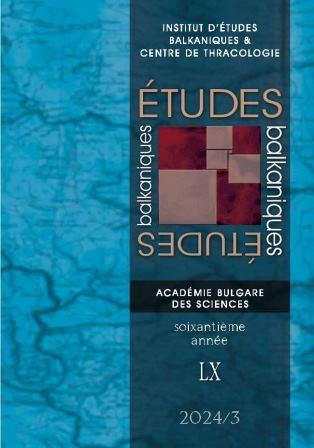
The article examines Vesna Parun’s journey to Bulgaria as a mental construction, whose optical framework is the meeting ground of the dialogue about borders and identities, about surmounting time and space, about the physical and its metaphysical dimension, about escape and return. Immersed in the waters of the “inner self”, the author focuses on suggestion in order to invigorate intuition and unravel the essence of her own existence. The brainchild of her deep self-reflection and philosophical insights, her contact with Bulgarian topoi, artists, historical and cultural realities is presented as an ontological route that is a rationale for creative inspiration and a condition for spiritual resurrection.
More...
In Croatian literature, there is a long tradition of travelogues from South Slavic countries. In this work, three travelogues of Vesna Parun, the great Croatian poet of the 20th century, are interpreted. Vesna Parun lived in Bulgaria for several years in the 1960s. In her book of essays, travelogues and feuilletons, Nedovršeni mozaik (1990), three Bulgarian travelogues were published: “More bez sunčevih zalazaka”, “Djevojčica i vjetar” and “Probuđeni bakrorez”.
More...
During her stay in Bulgaria in the 1960s, Vesna Parun formed strong friendships with leading figures on the Bulgarian literary scene, and Bulgaria became a kind of second homeland for her. Here she wrote her poetry collection The Wind of Thrace, which not only testified to her enchantment with Bulgarian nature, culture, and history but also served as an important document for the development of her poetic views. Through the Thracian myth and Bogomilism, through the images of Sozopol, Nessebar, and the Hermit of Rila, as well as through the irony and anti-dogmatism in the Sofia poetic and philosophical circles, Vesna Parun began to infuse the image of Bulgaria in her poetry with strong nostalgic sentiments. In this way she traced mental bridges between her native home and language and her new Bulgarian homeland, which could not be completely destroyed even after the suppression of the Prague Spring in 1968 and her expulsion from Bulgaria. Vesna Parun is a known and valued poet in Bulgaria, and her work has not lost its impactful influence.
More...